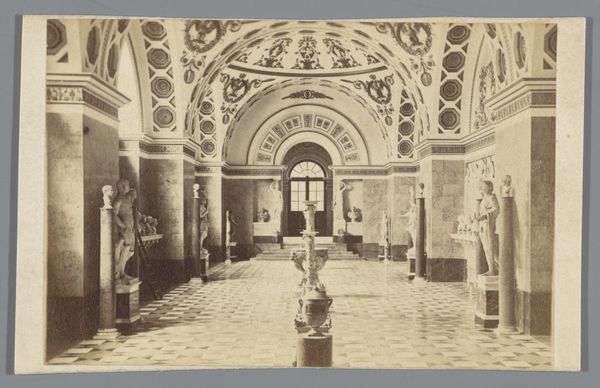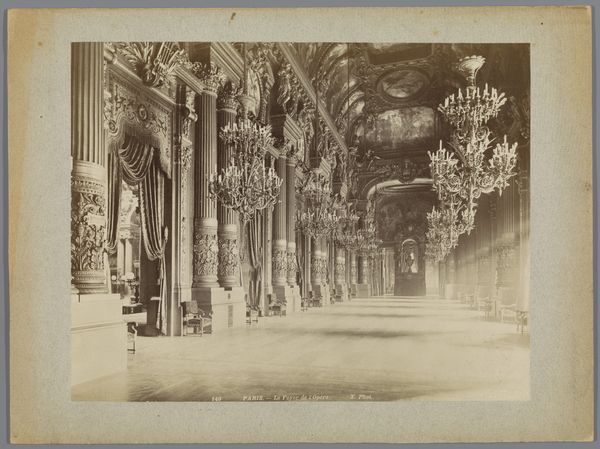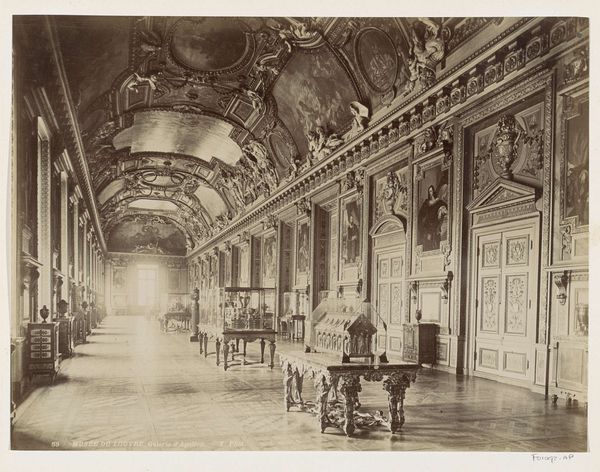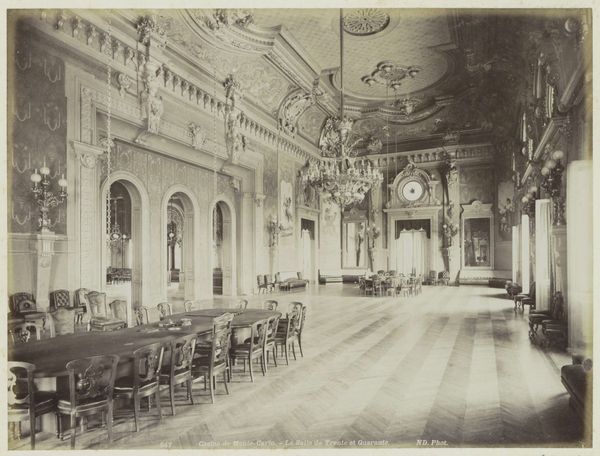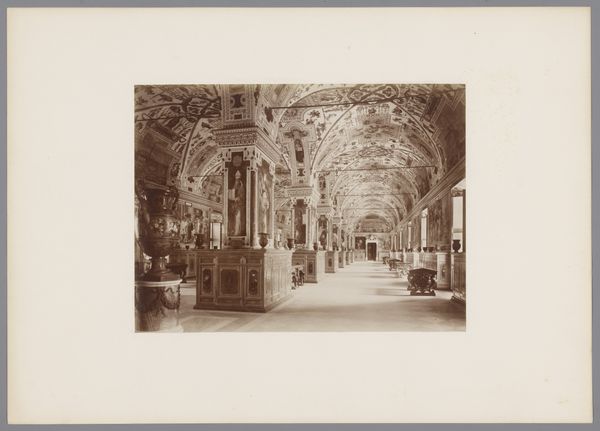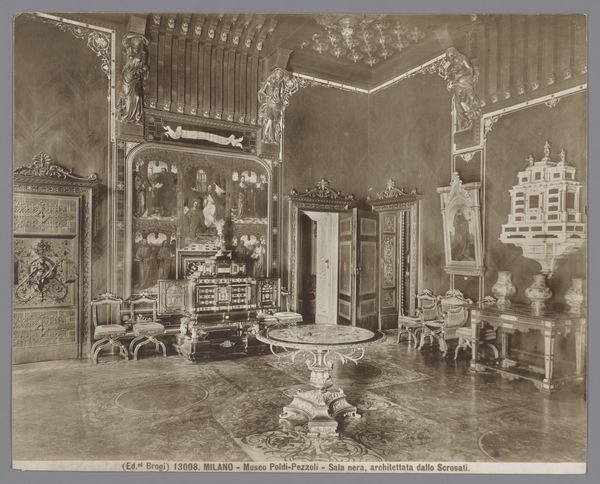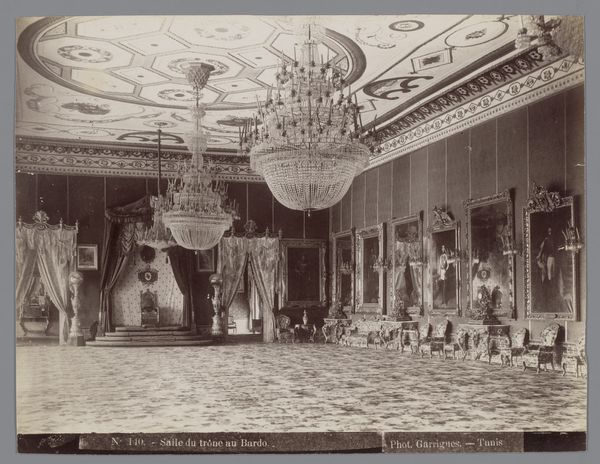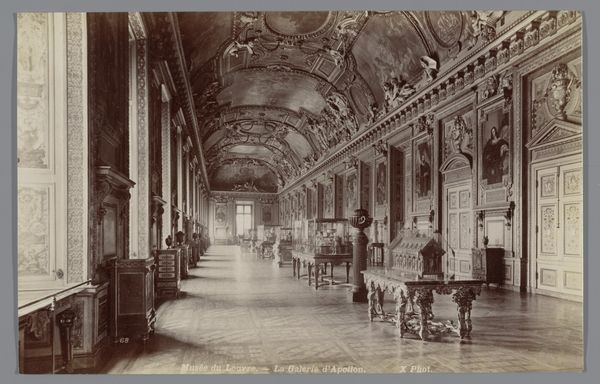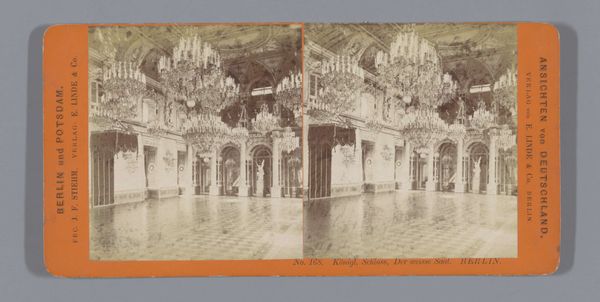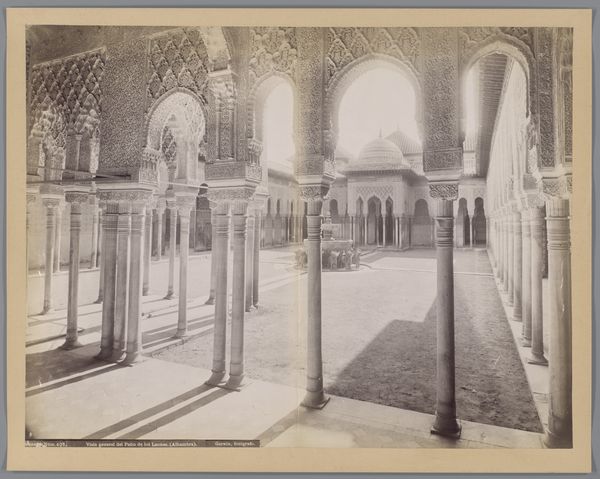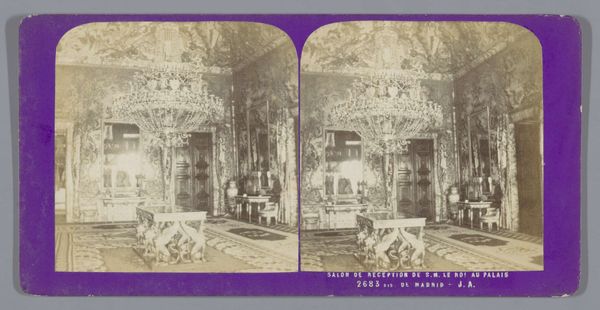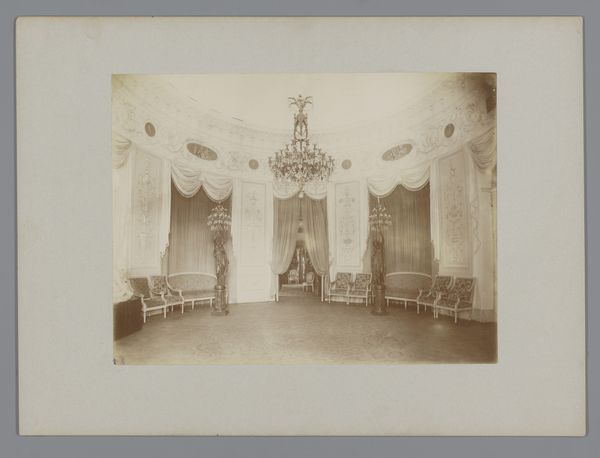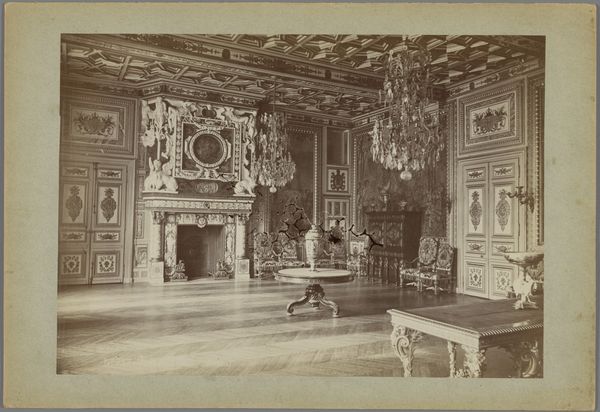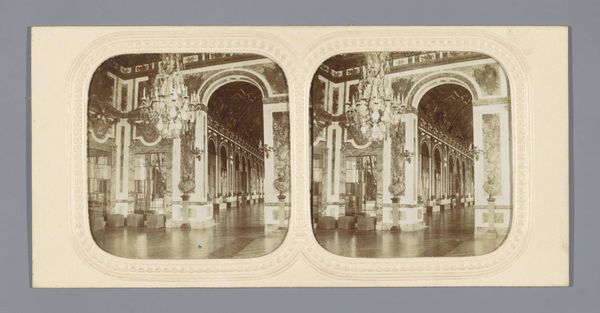![Koninklijk Paleis, Teheran [?], Iran by Antoine Sevruguin](/_next/image?url=https%3A%2F%2Fd2w8kbdekdi1gv.cloudfront.net%2FeyJidWNrZXQiOiAiYXJ0ZXJhLWltYWdlcy1idWNrZXQiLCAia2V5IjogImFydHdvcmtzL2I1NTljYmQ2LWNmYzAtNGFmOS05MTNmLWM4YzRmNmY1ZTc5NS9iNTU5Y2JkNi1jZmMwLTRhZjktOTEzZi1jOGM0ZjZmNWU3OTVfZnVsbC5qcGciLCAiZWRpdHMiOiB7InJlc2l6ZSI6IHsid2lkdGgiOiAxOTIwLCAiaGVpZ2h0IjogMTkyMCwgImZpdCI6ICJpbnNpZGUifX19&w=3840&q=75)
photography, architecture
#
photography
#
orientalism
#
islamic-art
#
architecture
Dimensions: height 157 mm, width 205 mm
Copyright: Rijks Museum: Open Domain
Antoine Sevruguin made this photograph of the Royal Palace in Tehran, probably in the late 19th century, using the wet collodion process. Photography at this time was a complex alchemical process, requiring not only technical knowledge and artistic vision, but also a substantial amount of manual labor. Think about the labour that went into making this image. The glass plate had to be prepared with a light-sensitive emulsion right before exposure, then developed immediately afterwards. We’re seeing not just the architecture of the palace, but also the skill and effort involved in creating this representation of it. Notice how the architecture itself—the chandeliers, mirrored surfaces, and painted ceilings—reflects a massive deployment of skill and materials. When we look at this image, we are seeing the product of many hands, from the artisans who decorated the palace to the photographer who captured its image. It's a powerful reminder that all images, even photographs, are made.
Comments
No comments
Be the first to comment and join the conversation on the ultimate creative platform.
